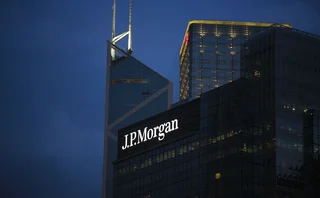
History repeating

An alleged hedge fund fraud, the overstating of gains and losses, questionable practices around the auditing of financial statements - it sounds a little too familiar. It is. Back in October 2005, the US attorney for the Southern District of New York filed a civil complaint against Connecticut-based hedge fund Bayou Management, the details of which bear a striking familiarity with the alleged fraud committed by Bernard Madoff (see page 8).
The suit alleged Bayou's quarterly financial statements overstated gains, in some cases reporting positive returns when the fund had in fact recorded losses. Astonishingly, the accounting firm named as the asset manager's auditor apparently did not exist. More shocking is the fact its investors, which included some large funds of funds and investment consultants, didn't pick up on this - something that could have been achieved by a simple Google search.
The Bayou case triggered a period of hand-wringing by investment advisers and funds of funds. Many pledged to improve due diligence - to conduct in-depth analyses on managers, strategies and investment processes, as well as review the organisation and reporting practices at firms.
Roll forward three years and the same failures have occurred again. Madoff allegedly used a small accounting firm for auditing purposes, was reluctant to meet investors, declined opportunities to join managed account platforms, and generated returns that were a little too good for the strategy it was apparently following.
Some participants, who did not invest in Bernard Madoff Investment Securities, claim there were plenty of red flags that should have alerted investors something was not right. Yet some of the biggest and most respected names in finance racked up hefty exposures to the fund, with total losses likely to stretch to $50 billion, according to some estimates.
On the one hand, it is always difficult to watch against fraud. On the other, it is clear dealers, private banks, advisers and funds of funds need to make dramatic improvements in their due diligence practices. There need to be clear minimum levels of disclosure and transparency, which must be met before investments can be made. While a complete overhaul of the regulatory framework for hedge funds may be an overreaction, regulators should act to draw up a due diligence check list - another thing to add to their already sizeable to-do list.
Nick Sawyer, Editor.
Only users who have a paid subscription or are part of a corporate subscription are able to print or copy content.
To access these options, along with all other subscription benefits, please contact info@risk.net or view our subscription options here: http://subscriptions.risk.net/subscribe
You are currently unable to print this content. Please contact info@risk.net to find out more.
You are currently unable to copy this content. Please contact info@risk.net to find out more.
Copyright Infopro Digital Limited. All rights reserved.
As outlined in our terms and conditions, https://www.infopro-digital.com/terms-and-conditions/subscriptions/ (point 2.4), printing is limited to a single copy.
If you would like to purchase additional rights please email info@risk.net
Copyright Infopro Digital Limited. All rights reserved.
You may share this content using our article tools. As outlined in our terms and conditions, https://www.infopro-digital.com/terms-and-conditions/subscriptions/ (clause 2.4), an Authorised User may only make one copy of the materials for their own personal use. You must also comply with the restrictions in clause 2.5.
If you would like to purchase additional rights please email info@risk.net
More on Hedge funds
JP Morgan warns hedge funds to expect intraday margin calls
US bank may demand variation margin ‘up to seven’ times a day after Archegos default
Alternative markets give edge to Florin Court strategy
By concentrating on exotic and alternative markets, Florin Court Capital Fund has sidestepped overcrowding and correlation to the main trend following commodity trading advisers, offering investors a diversified alternative to the standard systemic macro…
Global macro views combine with quantitative models to produce consistent returns
The team behind River and Mercantile Group’s global macro strategy team operates under two key principles: that macro is the most important aspect of any investment decision and that decision-making should incorporate both systematic and discretionary…
On the offensive – Seeking a new edge, buy-side invests in portfolio and risk analytics
A fast-moving, headstrong hedge fund – hit by rare losses after a black swan event touched on an overweight country exposure – ponders adding fresh quantitative expertise. Much to traders’ chagrin, the chief investment officer and chief operating officer…
Esma backtracks on account segregation
Status quo protected for rehypothecation of collateral in tri-party, securities lending and prime brokerage
Redemptions focused within strategies suffering losses in 2016
Redemptions focused within strategies suffering losses in 2016
Hedge fund redemptions a dismal end to a bad year
Managed futures funds saw big inflows in 2016, but left investors disappointed
Larger funds are net losers as outflows continue
Managed futures funds have seen biggest redemptions for three years






